Published Sep 1, 2016
Catching Up Laurel Goodwin, Yeoman Colt from "The Cage"
Catching Up Laurel Goodwin, Yeoman Colt from "The Cage"
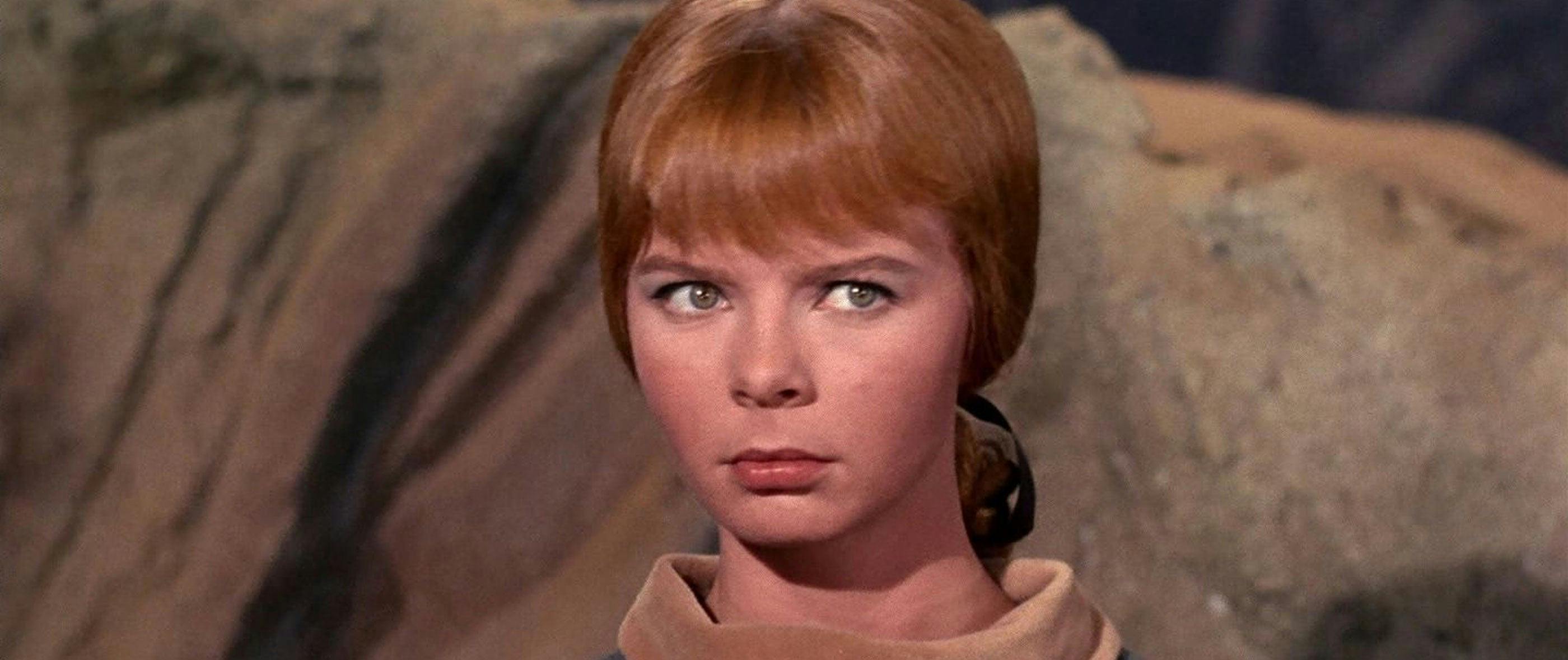
Life has a funny way of working out sometimes. Just ask Laurel Goodwin. More than 50 years ago, the child model-turned actress co-starred with Jeffrey Hunter, Majel Barrett and Leonard Nimoy in the original Star Trek pilot, “The Cage.” She played Yeoman J.M. Colt. NBC famously rejected the pilot, but ordered a new one and, well, here we are. But there’s more to it than that. Much more. Goodwin would have been part of the second pilot had Hunter stuck with the series; it was when he exited that NBC chose to keep Nimoy and drop Goodwin, while Barrett ended up with the role of Nurse Chapel. And so Goodwin was very, very nearly along for the ride and, in her own way, she still has been part of Trek’s trek.
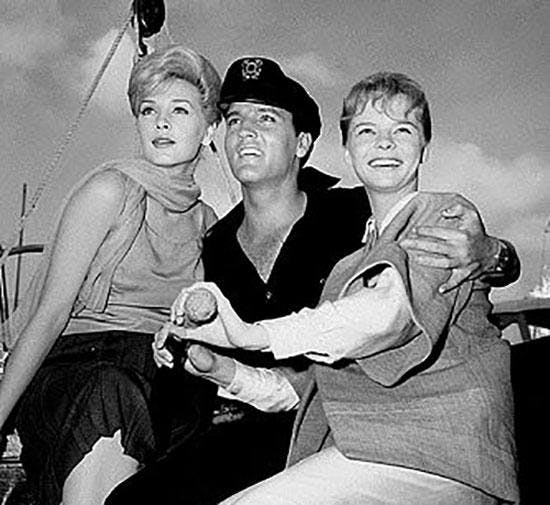
Star Trek aside, Goodwin appeared in the Elvis Presley film Girls! Girls! Girls! and with Jackie Gleason in Papa’s Delicate Condition, as well as in episodes of such television shows The Virginian, Get Smart, The Beverly Hillbillies and Mannix. She also co-produced the Burt Reynolds film Stroker Ace with her late husband, Walter Wood. StarTrek.com sat down with Goodwin earlier this month at Star Trek Las Vegas, and she talked candidly about her life today, her Trek experience, her status as the last living cast member from “The Cage,” and more. Here’s what she had to say…
What are you up to these days?
Well, actually, not a great deal. I'm living in Palm Springs, where I have been for about 20 years. After I retired from acting (in 1971), I went back to school and picked up, not a complete nursing degree, but a nursing degree. I was credentialed and all that, and went into home health care. We're talking taking care of seniors who were pretty badly handicapped and really needed someone who knew what they were doing. I did that for many years, and then about seven years ago, my husband became very ill. So I nursed him through a very long and slow, painful decline. I don't recommend it for anybody. But we had a wonderful 43-year relationship, and so I would do it again.
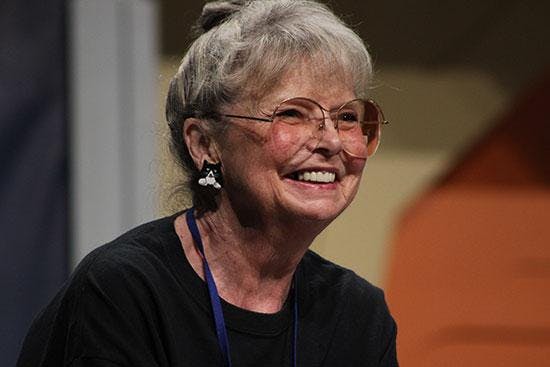
Anyway, after that I was kind of wiped out. I hadn't had four hours of consecutive sleep in about a year and a half. So it took me quite a while to recover and get my feet under me and all that. I lead a pretty quiet life. A little bit of socializing and such, but I’m not really working or doing anything. Star Trek has got me involved in a couple little minor things, but other than that, I haven't really done anything. I'm not really working. I'd love to do some theater, and I have had some opportunities, except that I don't really think I have the stamina to do theater anymore. You get to a point, and you really have to be athletic.
How have you enjoyed events like this, like Star Trek Las Vegas?
I don't enjoy getting to them. Or getting around at them. I think if I'm going to do any future ones, I'm going to request a scooter, because everything is five miles this way and four miles that way, and I'm getting up there, folks. But once I’m there, I really enjoy it. It really is a kick to see the fans, and to see that there are still people that are that delighted and tickled to see you. And they tell you so. How could you not have a good time? It’s really quite lovely. And everybody's been very sweet and helpful and nice. So I’m enjoying myself. But oh, I wish they had moving sidewalks or something.
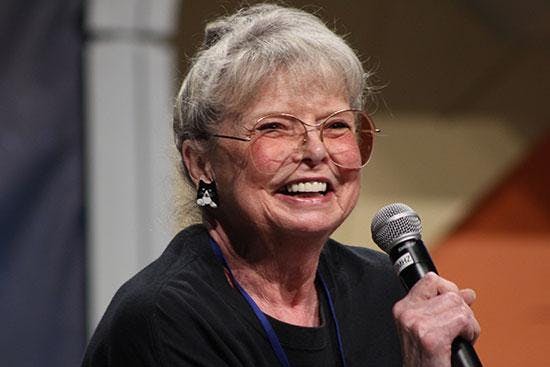
Time to go back 50-plus years. How did you land your role in “The Cage”? Do you remember the details of actually landing it?
Well, I was known in town, so I was one of the live ones. And Gene (Roddenberry) was seeing a whole bunch of people, and I got on the audition through an agent. The usual way. I think I auditioned two or three times. Something like that. And then I got the job. One amusing story was, when I came in, I had my portfolio with me because I learned to do that when I was modeling, earlier. Anyway, I had a portfolio. Some good pictures and such. One of the key things about this character that Gene Roddenberry said was, "We want Yeoman Colt to have great-looking legs." He said, "You appear to have nice-looking legs." So I opened up this portfolio. There was an old magazine called Pageant. I had done a big spread, and one of the shots was with me in black leotards, with the little micro-glasses, and a skunk on a leash and a book of Freud in the other hand. And oh, boy, does it make me look great. So I opened the thing, and Gene said, "Well, yes, they do look good. But, you know, photos." So he said, "You do look like you do have good-looking legs. Would you mind lifting your skirt a little bit?" It didn't bother me any. I was a model as a teenager. You dressed in the back with a sheet around you.
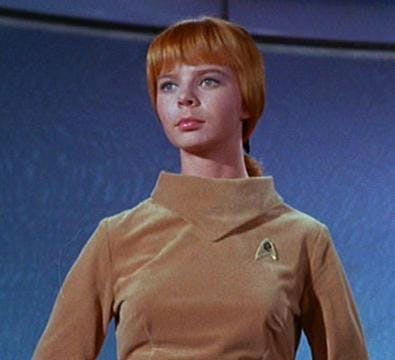
So I pulled my skirt up. Not immodestly. He said, "Well, yes, I guess we all have to agree that she does have good-looking legs." So I’m thinking, "Hmm. Well, okay." So now, I get the job. We get into costuming and we go out, Majel and I, because that was the uniform. We started doing that. And, of course, they had to design these costumes. Well, by the time they got this costume together, against my better judgment, I could have been knock-kneed and bowlegged. They had me in baggy three-quarter trousers and ugly boots. I thought, "Well, I’m certainly glad that one of the key things was that you had good-looking legs."
What on paper intrigued you about Colt as a character?
I'm an actor. Basically, it was playing the subservient role, and kind of having a crush on the captain and not trying to allow it to be picked up on so I could avoid getting into trouble, because you didn’t do that in a military setting. And I wanted to play it right because, just being an actress and getting a job, it wasn’t easy. The market was very, very tiny. Three networks. And they made a lot of pilots, but only a few ever got picked up. Star Trek was a bit different. It had a great philosophy. And I thought the timing was perfect, that it was time for a semi-adventure, philosophical, a little deeper than that science-fiction type thing, because everyone was getting a little tired of detectives and cowboys.
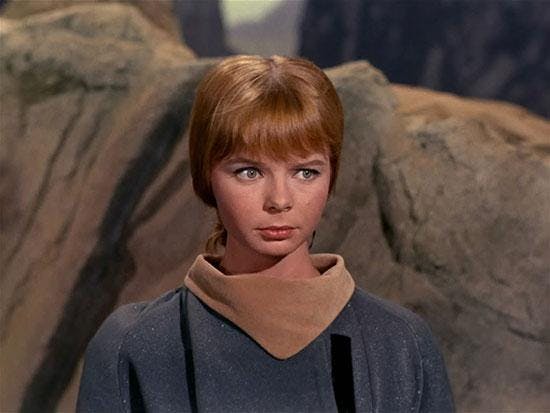
What was the shoot like?
I thought it was wonderful fun. Everybody worked very hard. First of all, we got to do a rehearsal thing, which was rather unusual. We gathered at a table. I was very involved with the makeup people and all that, while we were creating the roles and Leonard's look and all of that. So that was great fun and intriguing. It was sort of like being back at the studio again, because that's how I originated, under contract at Paramount. So that was great fun on that level, because I got to do a little of the behind stuff in the creation of this. Everyone was really very positive. Gene, of course, was totally enthusiastic. The only one that was very hard to read was Majel. Even the background people, they were all enthused, and fun. It was a fun thing to do. Also, realize, we didn’t have all the special effects stuff. We had a lot of Rube Goldberg going for us. MacGyver, I guess, is the one they’d recognize now. So I was having a great time watching how they were making these things look like they do it this way, and doing it an entirely different way. So that was a great kick.
And it was a joy for me to in the first day walk in and see Leonard there, because we went way back. When I was under contract to Paramount, they were sending me to Jeff Corey, who was a drama coach, and Leonard used to fill in when Jeff was working, and that's how I first met Leonard. I adored his methods as a drama coach. I joined Leonard's class out of my own pocket, because I loved the way he worked. We became friends and continued to be in contact. Not buddy-buddies. He was married and had a big family and all. Then we walked into makeup that first morning and we're both there. That was a thrill for me.
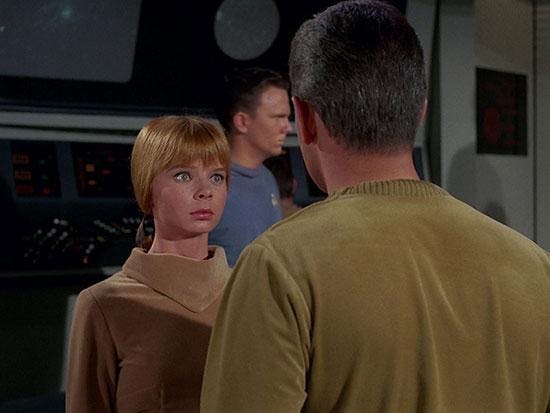
What do you remember of Jeffrey Hunter?
Oh, they just don't come any nicer or prettier. This guy, in person, he was better than he's been on screen. The eyes were mesmerizing. He was just a good-looking, wonderful, talented, charming person. Very easy to work with. He was a major star. There was no prima donna-ism. There was no ego nonsense. He was a very generous actor. He was one of the gang. It was like an ensemble, which was part of what appealed to me about the project. I had been invited to do two other pilots for half-hour comedy shows, and I had to make a decision when Star Trek didn’t sell the first pilot. They’d held on to me and Leonard. I had to make a decision whether I was going to stay with Star Trek or accept the situation with one of these other two comedies. I said, "Oh, no. Star Trek is it. I’ve got to do Star Trek. It's great, it's gonna be wonderful.” Then, they didn’t take that first pilot, but said there would be a second pilot. I thought, “We'll make the second pilot. They still want me. Yep, yep, yep."
So then all the negotiations go on, and the whole thing collapses. When they collapsed, they said, "Well, we don't really need Laurel, because it was for this reason. We're changing the storyline." And they brought in the luckiest man in the world, William Shatner. In the meantime, I had turned down the two comedies, pulled my name out of consideration. They both sold, and both were highly successful. That doesn't mean that I would have been. And the women who did it were brilliant and wonderful. However, in Los Angeles, you may do a dozen pilots over a certain period of time. I had three going live. Star Trek really looked like it was gonna work and I thought, “By this time next year...” But, nope.
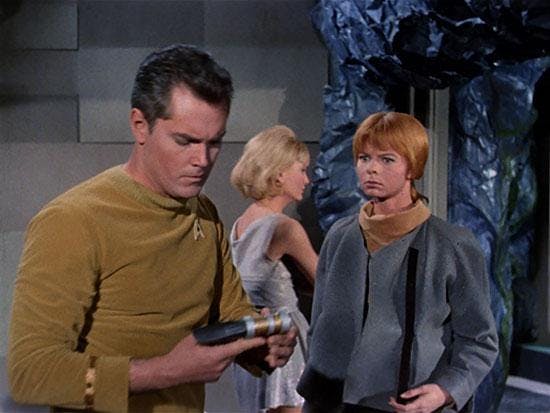
Let’s fill in a blank or two. You and Leonard were initially going to be back for the second pilot, but it was Hunter’s contract that needed renegotiating and ultimately collapsed…
That's where things went up in smoke.
His wife didn’t want him to do it. Correct?
She apparently told him, "You're a movie star. You're not a TV star." Now, I got this story from a very dear friend of mine back East, who was a network honcho, because we were having dinner. I knew him quite well, and we were involved in a lot of stuff in New York. I said, "So, what happened?" He said, "Well, to tell you the truth, we were going with it. We were going to go with Jeff." I said, "Why'd you keep me?" He said, "Because we felt you were so damn cute." That was nice. I said, "Well, thank you very much." He said, "No, no, it was great, and Leonard, of course, because of his ears and his very special look."
So he then said that when they were renegotiating Hunter’s contract, Mrs. Hunter came and made a list of demands. He said, "We agreed to all of them. Then she came a second time, with another list, and we went along with that. She came again with a third list." And he said, "They called a meeting. We all got together" -- the powers that be that make those decisions – and said, “You know, if this thing is successful and goes for a year or two, do we really want to put up with that woman?" They all said, "No." They said, "Well, let's not do it with Jeff." That's how the luckiest man in the world stepped into it. And they let me go.
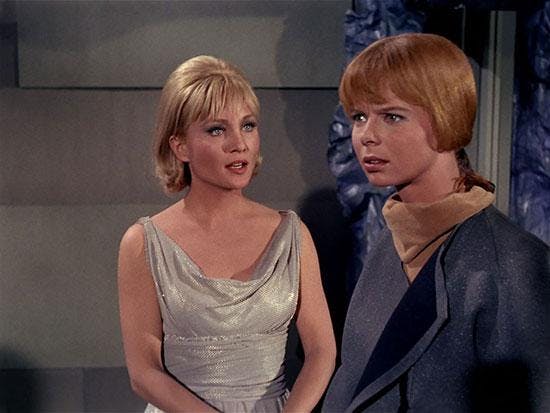
We have to ask this question. What was it like to watch Star Trek explode without you being a part of it? Your life could have been very different.
No kidding. It was very painful. Very painful. I, at that period of time, was going through a divorce. Not a pleasant divorce. I ended up having to cough up half of my salary from doing Star Trek as part of the property settlement. California, and all that sort of stuff. So it cost me a pretty piece of change. It cost me half of what I made. I couldn't believe it, because I had left him just before. Long, boring story on that one. It would have made an incredible difference. And I must say, I was disgusted, offended, and it made me tired of the business. It was really sort of the straw that broke my back. It really soured me, and I lost my enthusiasm altogether of doing these pilots and such.
So, yeah, I was devastated. Devastated. Then I was good for a while. When the show came on with Shatner on it, I thought, "Well, come on. Don't be sour grapes." The thing that took the thorn out of my paw really was Leonard, because I was so pleased for him, and I knew this was going to give him some liquidation, that he could then do what he really wanted to do. And I was very pleased with all of that. And I had come up with the pointed sideburns. And a few other things. But that, very specifically.
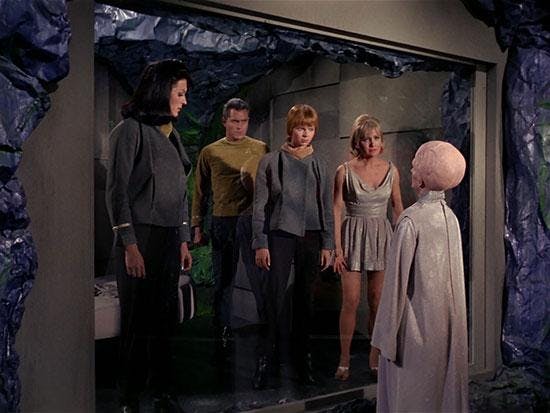
You suggested that?
Oh, yeah. When I was in makeup, Leonard's going, "You know, I’ve got to play this non-feeling alien, and all that." I said, "Honey, trust me. When they get these ears right and they get that right, we get that look just right, you're gonna be the sex symbol of the '60s." He brushed it off because he was a serious actor. So, even though I was crushed not to be on the show, I was delighted for Leonard. And, when the show started, not being sour grapes, I took a look at it. The first moment that William Shatner walks on, I go, "He's got Leonard's pointed sideburns." That did it. I turned it off and never watched it again.
At some point years after the show’s demise, Roddenberry started to show "The Cage" at conventions. It was in black and white at first. Then somebody found the color version, and he’d screen that. What was it like to see this pilot that nobody ever saw begin to see the light of day?
By then, it wasn’t near as important to me. I was very proud and pleased that Star Trek had grown and done everything that it had, but personally, it didn’t affect me that much because I led a very busy life and went on my way. Every once in a while, it’d cross my mind what I could have made just from the residuals if I’d done the show. But it is what it is. The first time I actually got to see the whole thing was 10 years ago, I believe, when I did the 40th anniversary event at the Hilton. I went in to buy a lighter or a book of matches, or something. They had stuff on the wall, and I gave it a look. They had a big display of all things Star Trek, and near there, there was a gift shop. I went in to get something. They had videos. I looked over and saw "The Cage." I went, "Oh, that's interesting." So I bought a couple. They were like, $5. Obviously getting rid of them. So I bought a couple and took them home. I sent one to my mother. She wanted it. That was the first time I saw it. But it was both black and white and color. So, that's the only time I’ve seen it. And, of course, my VCR is long dead.
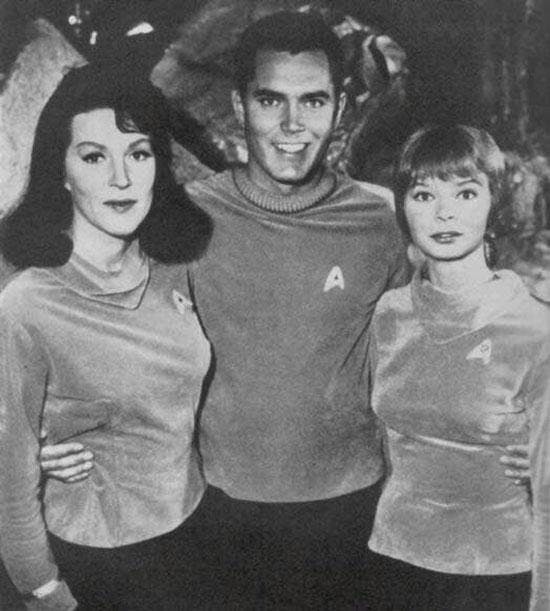
Now it's the 50th anniversary of Star Trek. How have you enjoyed being ranked as one of Star Trek's Most Beautiful Women?
[LAUGHTER] Have I been?
Yes, you have.
Oh, well, one young man, a nice-looking young man, he said, "I saw it when I was a young boy, and I've had a massive crush on you." I said, “Well, thank you." I think it's delightful. I love the idea. I wish I knew I was as cute as I was, when I look at the photos now, back then. I wish I had that appreciation of myself. I knew I was a good actress. I knew I could do whatever it was somebody would hire me for, but I wish I had appreciated how many more assets I had going for me, which I wasn’t taking full advantage of.
And what does it mean to you to be a part of the Star Trek phenomenon at this 50th anniversary? You're the last living cast member from “The Cage.”
I'm the last man standing. Yep. Yep, yep. I have to say, it's really quite wonderful, particularly now, at my age, to know that in some small way the work is still there, still alive, that it’s not something everybody has forgotten about.
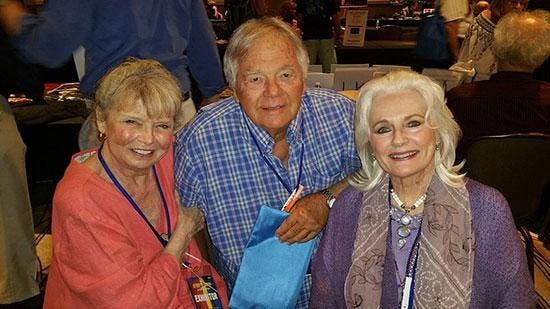
And it will outlive all of us.
Oh, absolutely. And I was fortunate enough to have experienced the very first seed of all this, with Gene and all the people, with Leonard. To have watched it blossom, I get a lot of gratification out of that. Also, knowing my experience and my little touch was in there, no matter whether anybody knows it or not, that makes you feel better about yourself. As you get older, there are fewer and fewer things you can actually do to make your mark, unless you're some great thinking genius. And I’m not stupid, but I’m no genius. But I know I did this, did Star Trek.
And you really are everything that you've ever done in your life. Even if you mess it up terribly in the end, or mess it up in the beginning, if you mix it all up and you've done some good stuff in between, it's a good life. I’ve had adventure, and a wonderful life, in so many ways, that people would give their right arm for. So how can I not be happy and content? How can I not get a kick out of seeing these people who still think I’m wonderful and beautiful? So many people have come and said, "You're still beautiful." True or not true, it's lovely to hear.

